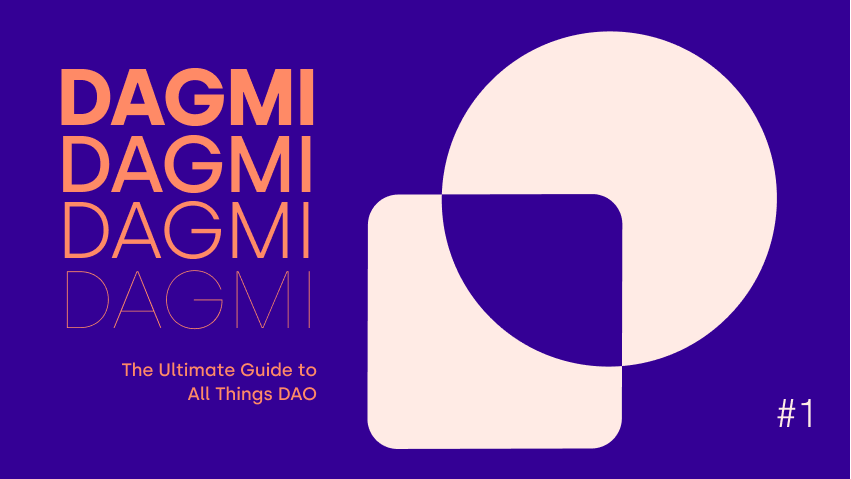DAGMI #1: Intro to DAO Governance

Welcome to DAGMI, the ultimate guide to all things DAOs.
DAGMI is an educational research series by the Commonwealth team. As an effort to spread DAO knowledge and alpha, we’ll take you on a journey through the basics of DAOs, their frameworks, and some of our own insights as a DAO tooling platform.
Let's dive in and buidl our DAO knowledge together!
What even is a DAO?
A DAO (short for decentralized autonomous organization) is a collectively-owned, blockchain-governed organization. Think of a DAO as a group of people coordinating and working together towards a common goal. This can look like a small group of like-minded individuals with a shared wallet or a huge organization with a multi-million dollar treasury. DAOs serve different purposes, ranging from token-gated social communities, to investment/venture-focused communities, to product-building communities, and beyond. Any organized community is a DAOs as long as it:
- Operates in a decentralized way
- Allocates resources for a defined purpose
- Provides members with decision making power through governance structures
DAOs differ from a traditional corporation working group because they allow for collective ownership over the decision making processes within the organization, which is what makes a DAO decentralized. What this means is that, unlike traditional companies / organizations, there is no central leadership that makes decisions on behalf of the organization’s members. Instead, every member has a personal economic stake in the DAO which allows them to
- Have a say in the decision making process
- Have a sense ownership over their contributions
- Be a part of a community
In short, DAOs serve to enhance coordination and cooperation among community members through shared ownership.
DAOs are also autonomous because decisions are automatically executed according to rules outlined in smart contracts. These rules create the base framework for the DAO to conduct governance.
Understanding DAOs: Why Governance Matters
DAO governance is the system of rules and regulations that dictates who can make decisions and how those decisions are made. Governance in a DAO is important because it allows stakeholders to:
- Make decisions collectively
- Align on common goals
- Hold each other accountable
Governance also helps ensure the accountability and responsiveness of DAOs to their stakeholders by using a transparent and democratic decision-making process (typically through voting and proposals). This helps keep things running smoothly, openly, and fairly for everyone involved.
Each DAO has its own means of governance. Processes can vary based on DAO types and their objectives. Through research, practice, and experimentation, DAOs are building best practices and developing new voting mechanisms. This is also constantly evolving alongside the technology of web3 and as more people enter the web3 space and join DAOs.
Membership in a DAO is often established through the ownership of a token. This token gives holders the right to participate in governance, become a member and access related benefits. Members' voting power is usually proportional to the number of tokens they own, and the voting process is typically managed through crypto/web3 digital wallets, such as MetaMask. Keep in mind that the specifics of membership and governance can vary greatly between DAOs, and we look forward to exploring more in future articles!
Till Next Time
That's it for our first ever DAGMI article. We look forward to bringing you many more of these; look out for publications every other Wednesday going forward! Our next article will dive into how we at Commonwealth fold into the DAO / governance equation.

